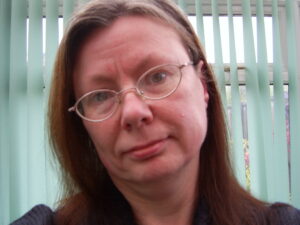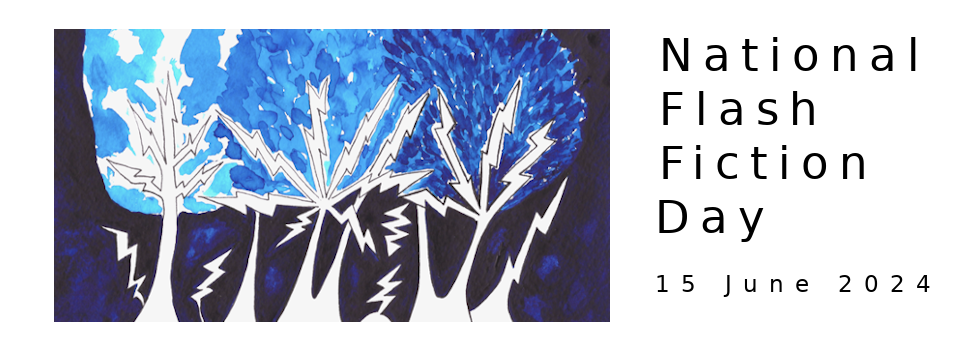Welcome to the sixth in our series of interviews with this year's National Flash Fiction Day Anthology Editors and Microfiction Competition Judges! Submissions for the Anthology and Microfiction Competition are open until 15 February 2024.
This week, NFFD's Diane Simmons chats with Alison Wassell, one of this year's NFFD Microfiction Competition Judges, about everything from titles to short story writing to her advice for those entering the Microfiction Competition....
 DS: Thank you for agreeing to be one of the micro fiction judges. Do you have any advice for anyone who has never written a 100-word flash before, but would like to give it a go?
DS: Thank you for agreeing to be one of the micro fiction judges. Do you have any advice for anyone who has never written a 100-word flash before, but would like to give it a go?
AW: You have a very small canvas, but you can still tell a big story if you make every word count. In flash, and particularly in micro, there is no need to over-explain. What’s not said can be as important as the words on the page. Don’t be afraid to ask the reader to do a bit of work and fill in the gaps for themselves. I’m a big fan of ambiguity, and it doesn’t really bother me if someone interprets my story in a way that’s different from what was in my head when I wrote it.
DS: As well as being a successful flash writer, you also write regularly for The People’s Friend and have had over 50 stories published in their magazine. Do you always know when you start a story which market you are aiming for?
AW: I always start a story for The People’s Friend knowing that that’s where I will be sending it. It’s a niche market, and completely unlike anything else I write. They’re much longer, for one thing. With flash, I write the story first, then think about the best place to submit it.
DS: Is there a flash fiction writer who has influenced your own writing? Or one who you particularly admire?
AW: The list of writers whose work I read and think ‘I wish I’d written that,’ is endless. To name just a few Elizabeth Ingram Wallace, Sara Hills, Jude Higgins, James Montgomery, Cathy Ulrich, Sarah Freligh. I’ve learned, and continue to learn, so much from reading their work. I aspire to one day write as well as they do, but with my own personal style.
DS: Have you always written fiction? If not, can you remember what inspired you to start?
AW: I always loved writing stories as a child, but my adult writing ‘career’ didn’t begin until I was in my mid-forties. I think I initially started writing as a kind of therapy after my parents died unexpectedly, within eighteen months of each other. Most of what I wrote was rubbish, but it felt good to set things down on paper. I went on to do a short course with the Open University called ‘Start Writing Fiction’. I loved it, and the tutor said I should start submitting to journals. I wrote longer stories at first, and had some success, but when I discovered flash I was hooked. I was always told off at school for not writing enough, and now I’d found a form of writing where less was definitely more.
DS: Most people consider titles to be very important, particularly in flash. Do titles come easily to you?
AW: I think the shorter the piece, the more important the title, and not just because it gives you extra words! A title can make or break a story. Occasionally, I think of a great title first, and write a story to fit it. More often, I really struggle. Many of my stories had half a dozen or more titles before I found one I was happy with, and there are more on my laptop waiting for inspiration to strike. The worst thing is when you have had something published, then think of the perfect title for it.
